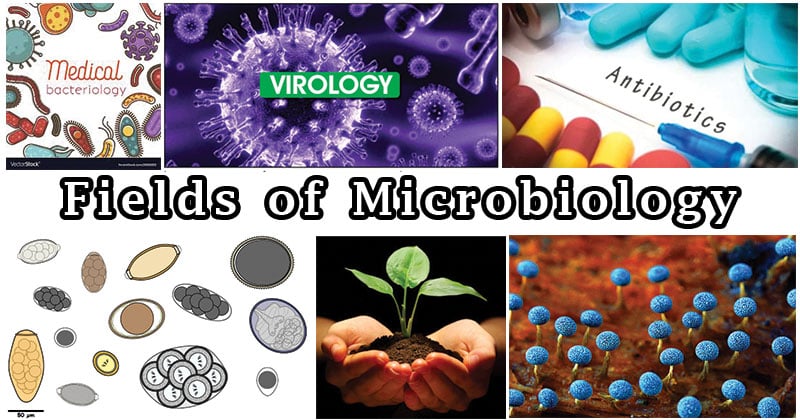Microbiology (MCB)

Microbiology (MCB): An Overview
Microbiology (MCB) is the scientific study of microorganisms—organisms too small to be seen with the naked eye—including bacteria, viruses, fungi, protozoa, archaea, and sometimes microscopic algae145. These microbes can be unicellular, multicellular, or even acellular (as in the case of viruses), and they play fundamental roles in the environment, industry, health, and disease15.
Major Branches of Microbiology
- Bacteriology: Study of bacteria
- Virology: Study of viruses
- Mycology: Study of fungi
- Parasitology: Study of parasites
- Protistology: Study of protists (single-celled eukaryotes)
- Immunology: Study of the immune system and its interactions with microbes25
Fields and Applications
Microbiology is a broad discipline with numerous applied fields, including234:
- Medical Microbiology: Focuses on microbes that cause disease (pathogens), their diagnosis, prevention, and treatment.
- Industrial Microbiology: Uses microbes for manufacturing products like antibiotics, enzymes, vitamins, and alcoholic beverages.
- Agricultural Microbiology: Examines the relationship between microbes and crops, including soil health, plant diseases, and biofertilizers.
- Food and Dairy Microbiology: Deals with food processing, spoilage, fermentation, and safety.
- Aquatic and Air Microbiology: Studies microorganisms in water and air, including their roles in contamination and disease spread.
- Biotechnology and Genetic Engineering: Manipulates microbes at the genetic level to produce medicines, hormones, and to solve environmental challenges.
- Public Health Microbiology: Monitors and controls the spread of infectious diseases in populations.
- Exomicrobiology: Explores the possibility of microbial life beyond Earth.
Importance and Impact
Microbiology has transformed medicine, industry, and our understanding of life. Key contributions include134:
- Discovery of antibiotics and vaccines (e.g., penicillin, smallpox vaccine)
- Development of sterilization and aseptic techniques
- Advances in genetic engineering and biotechnology
- Understanding and controlling infectious diseases (e.g., COVID-19 pandemic response)
- Food production and preservation (e.g., fermentation, probiotics)
- Environmental sustainability (e.g., biodegradation, nutrient cycling, nitrogen fixation)
- Exploration of microbial roles in climate change and biosecurity
While some microbes are pathogens, the vast majority are harmless or beneficial, playing essential roles in nutrient cycling, maintaining ecosystem health, and supporting human life134.
Historical Context
Microbiology as a science began in the 17th century with the observations of Antonie van Leeuwenhoek, and developed further through the work of Louis Pasteur and Robert Koch in the 19th century5. Modern microbiology now employs advanced molecular biology techniques, such as DNA sequencing, to study and identify microbes, many of which cannot be cultured in the lab5.
Summary Table
| Branch/Field | Focus/Role |
|---|---|
| Medical Microbiology | Disease-causing microbes, diagnosis, prevention, treatment |
| Industrial Microbiology | Microbial production of drugs, enzymes, chemicals |
| Agricultural Microbiology | Soil health, plant-microbe interactions, biofertilizers |
| Food & Dairy Microbiology | Food safety, spoilage, fermentation, probiotics |
| Biotechnology | Genetic manipulation for medicine, industry, environment |
| Immunology | Immune responses to microbes |
| Environmental Microbiology | Microbes in ecosystems, nutrient cycling, pollution control |
Microbiology is central to understanding life, combating disease, advancing technology, and protecting the environment. Its applications touch nearly every aspect of modern society1345.
Consult with Our Team of Experts Now!
At DrStemCellsThailand (DRSCT)‘s Anti-Aging and Regenerative Medicine Center of Thailand, we emphasize comprehensive evaluations and personalized treatment plans of Cellular Therapy and Stem Cells for managing various health conditions. If you have questions about Microbiology or would like more information on our services, consult with our experts today!
Consult with Our Team of Experts Now!
References:
A comprehensive overview of microbiology’s branches, history, and modern applications—including bacteriology, virology, mycology, parasitology, protistology, immunology, and their roles in medicine, industry, agriculture, and biotechnology—is provided in “Microbiology in the modern era” (DOI: 10.15406/jabb.2023.10.00327).















